Tuesday, May 19, 2009
Assessing Pope Benedict XVI's visit to Israel and the Holy Land
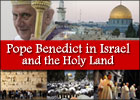 Before praying of the midday Regina Caeli with those gathered in St. Peter's Square, the Pope reflected on his recent eight-day tour of Jordan, Israel and the Palestinian territories Before praying of the midday Regina Caeli with those gathered in St. Peter's Square, the Pope reflected on his recent eight-day tour of Jordan, Israel and the Palestinian territories (Zenit News): "The Holy Land, symbol of God’s love for his people and for the whole of humanity, is also a symbol of the freedom and the peace that God wants for all his children," the Holy Father said. "In fact, however, the history of yesterday and today shows that precisely that Land has become the symbol of the opposite, that is, of divisions and interminable conflicts between brothers."
The Pontiff explained that the Holy Land "has been called a 'fifth Gospel,' because here we see, indeed touch, the reality of the history that God realized together with men -- beginning with the places of Abraham’s life to the places of Jesus’ life, from the incarnation to the empty tomb, sign of his resurrection."
"Yes, God came to this land, he acted with us in this world," he continued. "But here we can say still more: The Holy Land, because of its very history, can be considered a microcosm that recapitulates in itself God’s arduous journey with humanity.
"A journey that implicates even the cross with sin, but -- with the abundance of divine love -- the joy of the Holy Spirit too, the resurrection already begun, and it is the journey, through the valley of our suffering, to the Kingdom of God, the kingdom that is not of this world, but that lives in this world and must penetrate it with its power of justice and peace."
"Salvation history begins with the election of one man, Abraham, and of people, Israel, but its aim is universality, the salvation of all nations," Benedict XVI added. "Salvation history is always marked by this intersection of particularity and universality."
You can retrace Pope Benedict XVI's pilgrimage to the Holy Land in day-by-day detail here; what follows is a roundup up reflections and wrap-ups of this momentous trip.
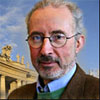 In Jerusalem and Bethlehem. Where the Foundations of the Faith Can Be "Touched" - Sandro Magister provides his own selection of excerpts from the Pope's remarks, commenting: In Jerusalem and Bethlehem. Where the Foundations of the Faith Can Be "Touched" - Sandro Magister provides his own selection of excerpts from the Pope's remarks, commenting:
it would be simplistic and misguided to give a purely political interpretation to the overall message that Benedict XVI wanted to address to the Christians of the Holy Land.
In the pope's judgment, the Church will be influential – on the political terrain as well – if it is able to do something different: if it helps above all to "remove the walls that we build around our hearts, the barriers that we raise against our neighbor."
Benedict XVI's main goal is to convert hearts and minds to God. He has said and written this repeatedly.
And he has remained absolutely faithful to this "priority" even on a trip so loaded with political significance as the one he is making to the Holy Land.
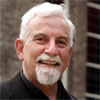 The Pope, Arabic Islam and the West, by Samir Khalil Samir (Asia News May 14, 2009). According to Samir, it is in Jordan that the Pope "laid the basis for collaboration between Muslims and Christians, East and West." While the Arab press focused on past resentments toward the Regensburg address, Fr. Samir encountered an atmosphere that "was serene, welcoming and of shared trust." He offers an analysis of the Pope's remarks at the University of Madaba, for him "the key point of the pilgrimage": The Pope, Arabic Islam and the West, by Samir Khalil Samir (Asia News May 14, 2009). According to Samir, it is in Jordan that the Pope "laid the basis for collaboration between Muslims and Christians, East and West." While the Arab press focused on past resentments toward the Regensburg address, Fr. Samir encountered an atmosphere that "was serene, welcoming and of shared trust." He offers an analysis of the Pope's remarks at the University of Madaba, for him "the key point of the pilgrimage":
It’s very important that in a Muslim (and Christian) world, often theocratic, the pope, before speaking of religion, speaks of culture and science. And the aim of science is to love and discover truth. He insists that this intellectual formation “will sharpen their critical skills, dispel ignorance and prejudice, and assist in breaking the spell cast by ideologies old and new”.
“Critical skills” are important in the Arab world: without criticism faith can become fanaticism, superstition or even manipulation. The pope touched on a point that is vital for the growth of the region: the absence of the critical eye, results in people following one or other political leader, without ever questioning the need for democracy, freedom, human rights, coexistence. People religiously follow, without ever questioning the principals of their own faith; holding onto traditions for fear of drowning in freedom of conscience. This is true of all religions not just Islam. Ignorance or prejudice, for the pope, threatens peace and dialogue.
And when he speaks of the “enchantment of ideologies” he alludes to the easy way people let themselves become consumed by fanaticism and violence.
He says: “Religion, of course, like science and technology, philosophy and all expressions of our search for truth, can be corrupted. Religion is disfigured when pressed into the service of ignorance or prejudice, contempt, violence and abuse”.
Benedict XVI puts all of these realities into the same boat because everything can be disfigured – even science. For him, what is important is that religion is not abused or disfigured. Read the rest of Fr. Samir's analysis.
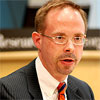 Three great ironies about Benedict's Holy Land visit, by John Allen Jr. (National Catholic Reporter May 15, 2009): Three great ironies about Benedict's Holy Land visit, by John Allen Jr. (National Catholic Reporter May 15, 2009):
After the most demanding high-wire act of his papacy, a grueling week that saw the 82-year-old pontiff deliver 28 speeches while shuttling among Jordan, Israel and the Palestinian Territories, it seems terribly simplistic to offer a report card, but here we go nonetheless: Give Benedict XVI an A for effort, and a B for execution. John Allen offers comprehensive analysis with some good insights. For example, on the sometimes harsh and abrasive criticism by Israelis of the Pope's words at Yad Vashem: "In effect, they argued, the very fact that Israelis weren't content just to see a pope at Yad Vashem, or at the Western Wall, is itself a sign of progress. It means that a pope coming to Israel is no longer a revolution or a cause célèbre, but rather an expression of a basically normal relationship.
Historically inclined Israelis see a progression from Paul VI's visit in 1964, when the pontiff refused to utter the words "state of Israel" or to refer to the country's president as anything other than "mister"; to John Paul in 2000, a trip that transformed relations; to Benedict in 2009, a visit reflecting a now-routine friendship, with its ups and downs, but fundamentally there's no turning back. As far as the "three great ironies" of the Pope's trip, Allen notes first that the "wordsmith pope, whose métier is generally ideas rather than images, often seemed to have more success at the level of symbolism"; secondly, that for one "notoriously resistant to attempts to turn the Catholic church into a political action committee, or the message of the Gospels into a revolutionary manifesto," Pope Benedict's "strongest moments came in the political arena"; and finally, that while Pope Benedict "is arguably the pope most inclined to be sympathetic to Israel since the Jewish state was founded six decades ago, yet the Israelis in some ways were his toughest crowd": Benedict XVI thus arrived in Israel not only as a pope committed to theological and spiritual fraternity with Judaism, but also one less instinctively hostile to concrete Israeli policies than many other Catholic leaders.
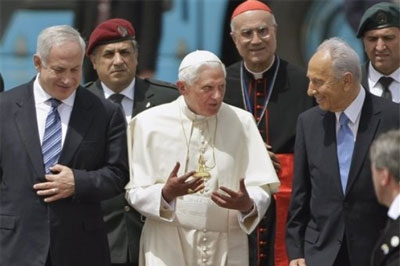
Perhaps the point was invisible to most of the Israeli public, but local Palestinian Christians actually complained before, and during, the trip that the pope was caving in to Israeli sensitivities at every turn -- not travelling to Gaza, not protesting when the Israelis refused to allow the residents at Aida to erect the stage immediately below the wall, and not protesting when the Israelis closed down a Palestinian press center in East Jerusalem. Even his schedule reflected deference to Israeli sensibilities. Benedict made sure to fly out of Tel Aviv well before sundown on Friday, so as not to disrupt the Sabbath.
Most Israeli leaders seemed to recognize this, which is probably why they rushed to Benedict's defense when the criticism began. At the inter-faith event in Nazareth, for example, Bahij Masour, who heads the religious affairs division of Israel's Foreign Ministry, made a point of saying during his introduction that the pope "has clearly condemned anti-Semitism and denial of the Holocaust." Certainly Israel's President, Shimon Peres, went out of his way to be gracious to the pope, including hosting a lavish gala in his honor at the presidential palace in Jerusalem on Tuesday.
As Israelis sort through the images left behind by the pope's trip, perhaps more of this will become clear. Read the rest.
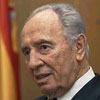 Commenting on the Pope Benedict XVI’s visit to the Holy Land, the president of Israel, Shimon Peres, said on Wednesday: "The entire message of the Pope is positive and could spark important reflection" (Catholic News Agency): Commenting on the Pope Benedict XVI’s visit to the Holy Land, the president of Israel, Shimon Peres, said on Wednesday: "The entire message of the Pope is positive and could spark important reflection" (Catholic News Agency):
In an interview with L’Osservatore Romano, Peres said, in order to "have a clear idea of the message left by Benedict XVI," it is "necessary to combine his discourse at the airport" in which he deplored anti-Semitism and encouraged Christians to promote peace, with "the one at Yad Vashem," in which he reiterated the commitment to the Church to denounce all hatred.
Peres told the Vatican newspaper that there was no one better than the Pope to express rejection for any religion that justifies violence. He said the Holy Father’s strongest message was "perhaps his arrival speech. More than once the Pope has spoken of the role of the three monotheistic religions in the building of a lasting peace."
Referring to the search for peace, Peres noted that a new trend is emerging in the Middle East. People are no longer "satisfied with bilateral agreements, but rather seek regional agreements for peace and peaceful coexistence with the understanding that modern democracy does not consist of the right to be equal, but in the equality of rights to be different; in which all prayers can reach heaven without interference or censure."
- In Holy Land, pilgrim pope delivers religious, political challenges - A decent recap by John Thavis (Catholic News Service):
Pope Benedict XVI's eight-day visit to the Holy Land was a biblical pilgrimage, an interfaith mission and a political balancing act all rolled into one.
It was also a gamble. In a region hardened by decades of conflict and simmering social and religious tensions, there was no guarantee of success.
The long-range verdict is yet to come on this "pilgrimage of peace," but the pope certainly delivered a clear and challenging message to his diverse audiences in Jordan, Israel and the Palestinian territories May 8-15. That alone was an achievement. ...
- "Singing away theological differences in Nazareth" - Tom Heneghan comments on poignant-if-curious moment for the former Prefect of the CDF:
This sing-along started at an interfaith meeting when a rabbi began singing a song with the lyrics “Shalom, Salaam, Lord grant us peace.” At some point, the 11 clerics on the stage stood up and held hands to sing the simple tune together. Never very spontaneous, Benedict looked a little hesitant but then joined in. It was something of a “kumbaya session” — a “religious version of We Are The World,” one colleague quipped — but it was good-natured and well meant. The pope has been preaching interfaith cooperation at every stop on his tour and it seemed appropriate that it culminate in a show of unity among the religions in Galilee.
But wait a minute. This is the same Joseph Ratzinger who, when he was a cardinal heading the Vatican’s Congregation for the Doctrine of the Faith, frowned on Pope John Paul’s pray-in with other religions at Assisi in 1986. He even declined to attend what became one of the landmark events of his predecessor’s papacy. [More]
- Papal Pilgrimage Ends With a Bang: Benedict XVI Sums Up Message in Packed Address, by Father Thomas D. Williams, LC (Zenit News):
Benedict took advantage of his last meeting with Israeli President Shimon Peres to reiterate the key messages of his pilgrimage to the Holy Land. This Pope -- whom many consider incapable of uttering a sound bite -- managed to condense his week’s message into an 859-word address that lasted no more than three minutes. Somehow in this brief interval he was able to encapsulate the gist of the 29 different encounters that he had throughout this action-packed week. It seemed as if he were back in the university classroom once again, summing up his day’s lecture to keep his more distracted students on track. ...
- Pope in Holy Land where fear breeds criticism, by Franco Pisano (AsiaNews):
In Lebanon As Safir, a pro-Syrian newspaper close to the extremists of Hizbollah and Hamas, wrote that the moral authority of the Pope “has no influence on the Arab East that it can leave a trace to shape change.” A Hamas leader accused the Pontiff of not saying things which he had actually said, whilst an imam in Nazareth, who wanted to build a mosque close to the Church of the Nativity, said he “was not welcome.” Israeli closer to the opposition and the ultra-orthodox right attacked him, also forgetting what he said the same day. Part of the Western media echoed such views. If extremists and others, those who are against him on principle, attack him, then Benedict XVI has achieved some results for one does not attack someone who is irrelevant.
- Fr. Raymond J. de Souza: Pope Benedict XVI's visit "a reason to give thanks" (National Post May 16, 2009):
Pope Benedict returned to Rome likely content with the workmanlike success of his trip. A spectacular triumph it wasn't. Yet the principal task was accomplished just by coming, lest it be said that the German pope declined to visit Israel. To get here was a struggle, with the Vatican having to overrule local Catholics who were lukewarm to the visit, and the more determined opposition of other Christian leaders. The Christian Arabs here thought the visit would be an undeserved propaganda triumph for an Israeli government they deeply mistrust. They asked the Pope not to come. He came anyway.
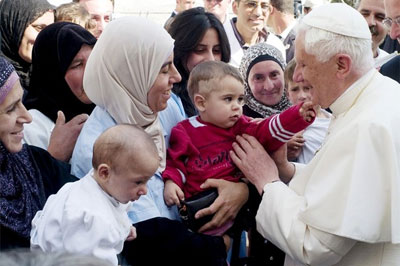
- Commonweal's Paul Moses on Benedict’s effort to reach Arab world:
Benedict made a strong effort to speak to the Arab world on this trip. I haven’t made a line-for-line comparison of their remarks, but my sense is that Benedict was more pointed than John Paul was in his defense of the Palestinian people. ...
This may turn out to be the most significant aspect of the trip - more so than the debate on whether the pope should have spoken more personally about the Holocaust. One must suspect that at least some of the negative reaction in Israel was driven by the pope’s take on the Israeli-Palestinian dispute. Or, as an editorial in the Jerusalem Post put it, “The past week showed that on the Palestinian-Israeli conflict, Pope Benedict XVI just doesn’t get it. ” But maybe he does.
- Photographer Stefano Spaziani has some amazing footage of the Pope's visit to Israel
- Yechiel Eckstein, founder of the International Fellowship of Christians and Jews, believes the Pope's trip to Israel was a success and laments those Jewish critics declining to attend the papal events, and says "there is no question that this pope deeply respects Judaism and stands solidly for the security of the state of Israel" (Wall Street Journal):
As someone who has dedicated the past 35 years to fostering respect between Jews and Christians, I was deeply encouraged by the pope's visit and believe that it has contributed significantly toward supplanting the dark and violent history between Jews and the church.
The world desperately needs this model of reconciliation. I pray that it extends to our Muslim cousins too, so that all the children of Abraham might find peace with one another.
- Benedict XVI's visit to the Holy Land brought with it a "renaissance" in relations between Jews, Muslims and Christians, says Father Caesar Atuire, delegate administrator of Opera Romana Pellegrinaggi, the Vatican institution whose mission is to evangelize through pastoral tourism and the ministry of pilgrimage. (Zenit News)
- Leading rabbis in interfaith relations applauded Pope Benedict XVI’s speech at the Yad Vashem Holocaust memorial in Jerusalem, countering criticism from Israeli politicians and journalists (MetroCatholic):
“I really think it is purposeless to parse every word of the pope, and to read into [his remarks] nuances that were not intended,” said Rabbi Gilbert Rosenthal, Executive Director of the National Council of Synagogues.
Rabbi Rosenthal made his comments at a press conference with Archbishop Timothy Dolan of New York following the spring meeting of the consultation of the U.S. Conference of Catholic Bishops’ (USCCB) with the National Council of Synagogues (NCS) of America, May 12, in Manhattan.
Rosenthal added that “the Holy Father went to Yad Vashem; he prayed at the Wall; he reiterated the fact that the Shoah must never be forgotten and that the names of the six million victims must never be erased from historic memory.”
Rabbi Alvin Berkun, President of the (Conservative) Rabbinical Assembly, stood with Rabbi Rosenthal, and said the pope’s visits to both the memorial and the Western Wall, where he placed a prayer for peace among the religions and states of the region, build on the successes of his predecessor, Pope John Paul II, who visited the Holy Land in 2000.
- "My encounter with the Pope", by Rabbi Benjamin Blech. Aish.com. An eyewitness to the Pope's encounter at Yad Vashem responds to the inquiry, "how does a rabbi feel when he meets the pope?"
 Labels: israel
Saturday, May 31, 2008
Vatican, Israel report progress in talks
Tuesday, December 04, 2007
The End of Christianity in Palestine?
Expert: 'Christian groups in PA to disappear', by Etgar lefkovits. Jerusalem Post December 4, 2007: The ever-dwindling Christian communities living in Palestinian-run territories in the West Bank and Gaza are likely to dissipate completely within the next 15 years as a result of increasing Muslim persecution and maltreatment, an Israeli scholar said Monday.
"The systematic persecution of Christian Arabs living in Palestinian areas is being met with nearly total silence by the international community, human rights activists, the media and NGOs," said Justus Reid Weiner, an international human rights lawyer in an address at the Jerusalem Center for Public Affairs, where he serves as a scholar in residence.
He cited Muslim harassment and persecution as the main cause of the "acute human rights crisis" facing Christian Arabs, and predicted that unless governments or institutions step in to remedy the situation - such as with job opportunities - there will be no more Christian communities living in the Palestinians territories within 15 years, with only a few Western Christians and top clergymen left in the area. . . . [read more] (Via Deal Hudson).
Worth reading: The Beleaguered Christians Of The Palestinian-Controlled Areas, by David Raab. Labels: israel
Monday, August 27, 2007
Poetic Justice.
The ultimate betrayal? Son of Nazi Embraces Judaism ( Jewish World Review August 21, 2007): Bernd Wollschlaeger has two stories to tell.First, he's a former officer in the Israel Defense Forces, a physician who developed expertise in biological warfare. He lives in Miramar, Florida, runs a family practice in North Miami Beach, has become a legislative leader of the American Medical Association and is active in local Jewish causes.
Now, at 49, he has decided to tell "my coming-out story."
It is this: He was born the Christian son of a World War II German tank commander — a third-generation warrior who received Deutschland's highest military honor, the Iron Cross, which was pinned on his uniform by Adolf Hitler himself. . . . Good one. Here's another from last year: Matthias Göring Goes Kosher ( Der Spiegel May 10, 2006): Mr. Göring is determined to discover the origin of the wine we're drinking. The waiter, an old man with snow white hair and a dark blue kippa, toddles over and says: "It's from a small vineyard near Haifa, Sir." Göring leans back in his chair, satisfied. "Ah, Israeli wine," he sighs, "Perfect."That's Matthias Göring, not Hermann. Even so, it is very odd to be having lunch in a Jewish restaurant with a direct descendent of Adolf Hitler's right-hand man. Matthias Göring, though, couldn't be happier here. After 44 years of "despising Jews" and suffering the curse of his family name, the 49-year-old physiotherapist has become a full-on Israel lover. He wears a kippa, keeps kosher, celebrates Shabbat, is learning Hebrew and is even considering converting. His family thinks he has gone mad. "They think I've got a screw loose," grins the man who now works with the victims of suicide bombings. "But I know what has happened to me is completely and utterly real." Labels: israel
Monday, February 12, 2007
Israel-Vatican Relations & The Fundamental Agreement
On December 30, 1993, the Fundamental Agreement was signed by Msgr. Claudio Celli, Vatican assistant secretary of state and Israel's deputy minister of foreign affairs, Yossi Beilin, paving the way to full diplomatic relations between the two parties in 1994: The Fundamental Agreement extends the theological advances of Nostra Aetate into the political realm, creating for the first time formal diplomatic relations between the Holy See and the State of Israel. The Agreement signifies a historic step in the evolution of the Roman Catholic Church’s attitude toward Judaism and the Jewish People.The Fundamental Agreement addresses three spheres of relations: 1) political relations between Israel and the Holy See; 2) relations between the Jewish People and the Catholic Church; and 3) relations between the State of Israel and the Roman Catholic Church. [Source: Milestones in Israel-Holy See Relations 1993-2005: Commemoration of the 40th Anniversary of Nostra Aetate Consulate General of Israel in New York].
In 1997 the "Legal Personality" Agreement between the State of Israel and the Holy See was signed: [regularizing] the status and legal personality of the Roman Catholic Church and its institutions under Israeli law, after approximately 500 years of undefined legal status under Ottoman Empire, the British Mandate, and Israeli sovereignty.This agreement marks the first de jure recognition of the Roman Catholic Church by any government in the Holy Land. It bestows upon the Roman Catholic Church the autonomy to run its internal affairs, subject to Israeli law in interaction with other bodies. The Legal Personality Agreement constitutes a continuation of the Fundamental Agreement of 1993. 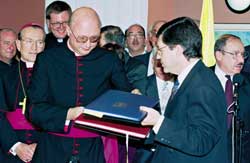 In an exclusive article, The ten years of the Fundamental Agreement 30 Giorni ["30 Days"] No. 12, 2003, Israeli statesman Yossi Beilin describes the "behind the scenes" discussions which led to the signing: In an exclusive article, The ten years of the Fundamental Agreement 30 Giorni ["30 Days"] No. 12, 2003, Israeli statesman Yossi Beilin describes the "behind the scenes" discussions which led to the signing:
These were open talks, launched at the Vatican’s initiative in the summer of 1991, even before the Madrid Conference. It was Archbishop Andrea Cordero Lanza di Montezemolo, the apostolic delegate in Jerusalem, who announced the Vatican’s intention to initiate negotiations on an agreement with Israel, and he did so in consultation with Dr. David Jaegar, an Israeli Jew who had become a Franciscan priest, with boasted special knowledge in Canon Law.
The initial probes between Israel and the Vatican revealed the main dispute between them: Israel wanted to reach, first of all, an agreement on diplomatic relations between the two states, and only subsequently to discuss questions such as the freedom of religion, Church taxation, education, etc. The Vatican wanted to deal with all the practical matters, and to remove – at least at the first stage – the matter of the diplomatic relations from the agenda. . . .
Each party came to the table with its own priorities -- for Israel, the objective was (understandably) "the common war on anti-Semitism and unequivocal recognition of the State of Israel." For the Church, the concern lay with the rights of Catholics residing in the State of Israel: . . . the guarantee of freedom of worship for Catholics, the legal status of priests, and the special approach of Pope John Paul II, who, as early as 1981, had sent to the President of the State of Israel a blessing for the New Year, and in 1986, had visited the synagogue in Rome – symbolic acts which stressed – alongside a long list of other acts – his special deep respect for Israel and its people.
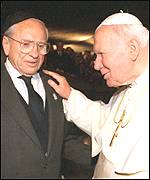 John Paul II's greetings to Israel in celebration of their new year appears to have sprung from a collaboration with his lifelong friend Jerzy Kluger, who played a subtle yet instrumental role (at the Pope's request) in facilitating communication between Israel and the Vatican ( How a Pope's Boyhood Friend Helped Forge Ties to Israel): When the Archbishop was named Pope in 1978, he stunned the world by granting his first papal audience, or formal reception, to Mr. Kluger and his family.
Three years later, the Pope was wounded in an assassination attempt. On Mr. Kluger's third visit to the Pope in the hospital, the Pope suggested that with the Camp David accords pointing the way for peace in the Middle East, it was time for the Vatican to consider opening diplomatic channels to Israel.
"Are you willing to help?" Mr. Kluger says the Pope asked him. "We must proceed cautiously, officially and unofficially."
Mr. Kluger played the role of broker and host, inviting Israeli and Vatican representatives to dine at his tennis club in Rome and playing bridge with key Cardinals. The steps were often small and symbolic. Once he relayed an Israeli diplomat's suggestion that the Pope send a telegram with Jewish New Year greetings to the President of Israel. The Pope sent the telegram.
In 1994, at the ceremony welcoming the first Israeli Ambassador to the Holy See, Mr. Kluger stood for photographs next to the Pope, sandwiched between Israeli and Vatican dignitaries.
"I was a friend," Mr. Kluger said. "And we had friendly conversations, and friendly relationships which one way or another helped these developments. That's all." (Pope John Paul II and Jerzy Kluger's friendship was made the subject of Darcy O'Brien's The Hidden Pope: The Untold Story of a Lifelong Friendship (Roedale Books, 1998).
Related Commentary on The Fundamental Agreement
- In Israel-Vatican Relations Since the Signing of the Fundamental Agreement, Rabbi David Rosen discusses some of the conceptual conceptual hurdles that were tackled in the process of formalizing the Fundamental Agreement and Israeli-Catholic relations since its signing in 1993. [Microsoft Word - printable format]:
. . . as the Preamble of the Agreement indicates, the accord took place within the wider context of Catholic-Jewish reconciliation on which it undoubtedly had a profoundly positive impact in turn. Indeed, for many Jews especially in Israel, the diplomatic normalization served as testimony and proof of the genuineness of the transformation in theological attitudes and teaching that had taken place over the previous thirty years. The third relationship addressed by the majority of the articles in the Fundamental Agreement, concerns the relationship between the Catholic Church in Israel and the State.While Israel's goal was essentially the first of these3, the Holy See's primary interest concerned the third. Indeed this difference reflects the divergent perceptions of the principle purpose of the bilateral relations. Rosen's article was published in the anthology The Vatican-Israel Accords: Political, Legal, and Theological Contexts, edited by Marshall J. Breger. University of Notre Dame Press (February 2004).
- Israel's Relations with the Vatican by Aharon Lopez (former Israeli ambassador to Vatican). No. 401 13 Adar 5759 / 1 March 1999. Jerusalem Center for Public Affairs:
The establishment of diplomatic relations between Israel and the Holy See is not to be considered as a point of arrival, but rather as a starting point. We are climbing up a mountain together and, from time to time, we reach important and substantial milestones towards the mountain's peak.
In closing, let me share with you a very significant event which I cherish close to my heart. At the beginning of my mission as Ambassador to the Holy See, I received a fax from an Israeli Christian Arab who requested my help in asking the Pope to baptize his son. He and his wife were especially keen in seeing their wish fulfilled because, sadly, they had experienced the tragic loss of their first son.
Knowing that there are "only" 989 million Catholics all over the world, I feared we might have some difficulties in fulfilling such a request. Nevertheless, I contacted the proper authorities in the Vatican and emphasized that during the presentation of my credentials I had assured the Pope that I am representing all Israeli citizens--Moslems, Christians, and Jews alike--and therefore it was my duty to submit this request on behalf of a Christian citizen of Israel.
I was very pleased, a few weeks later, to receive a positive answer. Indeed, the Pope agreed to conduct the ceremony in his private chapel. I will never forget the smile on the face of the boy's parents after their dream came true.
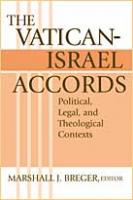 The Vatican-Israel Accords: Political, Legal, and Theological Contexts The Vatican-Israel Accords: Political, Legal, and Theological Contexts, edited by Marshall J. Breger. University of Notre Dame Press (February 2004). [ Contents]. Published during the tenth anniversary year of The Fundamental Agreement, The Vatican-Israel Accords brings together essays that analyze the legal, historical, theological, and political meaning of the Accords. The compelling essays in this collection explore not only the document and events surrounding its signing, but also the past, present, and future of Catholic-Jewish relations. Contributors, who include scholars from Israel, Italy, France, Spain, and the United States, contend that the history and structure of the Accords offer lessons that may be instructive for others involved in seeking peaceful resolutions to conflict, particularly those who work for peace between Palestine and Israel. Contributors: Marshall J. Breger, Laurenzo Cremonesi, Msgr. Richard Mathes, David-Maria A. Jaeger, O.F.M., Leonard Hammer, Silvio Ferrari, Rafael Palomino, Msgr. Roland Minnerath, Rabbi David Rosen, Moshe Hirsch, Geoffrey Watson, Giorgio Filibeck, Ruth Lapidoth, Fr. Drew Christiansen, S.J., and Rabbi Jack Bemporad.
MARSHALL J. BREGER is professor of law at the Columbus School of Law, Catholic University of America.
Reviews "The Vatican-Israel Accords promises to make a tremendous contribution to understanding a tangled relationship. It is a unique, and uniquely valuable, volume." --George Weigel, Ethics and Public Policy Center, Washington, D.C.
Israeli-Catholic relations since the 1993 signing have not always gone smoothly. Sandro Magister reported on two impediments to Israeli-Vatican relations and the subsequent implementation of the Vatican-Israel accords (with regards to financial issues and the status of Church property) in 2005: The first skirmish came on July 12. That day, John Paul II was commemorated in the Israeli parliament, the Knesset. And on that occasion, apostolic nuncio Pietro Sambi delivered a speech that was reprinted in its entirety by "L'Osservatore Romano" six days later.In the speech, Sambi complained about Israel's failure to take practical measures to implement the accords with the Holy See reached in 1993 and 1994:
"The Fundamental Agreement, which was ratified by the state of Israel on February 20, 1994, and is recognized internationally, has not yet been incorporated into Israeli law by the Knesset. The same must be said of the Legal Personality Agreement ratified by Israel on December 16, 1998, and recognized internationally on February 3, 1999. The so-called 'Economic Agreement', prescribed by article 10 of the Fundamental Agreement, has not yet been concluded." A meeting between the two parties to discuss the application of these agreements had been planned for July 26. But the meeting never took place, to the great disappointment of the Holy See and the Catholic community in the Holy Land. On the day the ceremony was taking place in the Knesset, on July 12, Islamic terrorists carried out a serious attack in Netanya. But at the Sunday Angelus on July 24, Benedict XVI did not mention Israel as being among the countries recently struck by terrorist attacks: Egypt, Turkey, Iraq, Great Britain. Exploiting this omission, the next day the Israeli foreign minister summoned the Vatican nuncio, Pietro Sambi, to communicate a note of protest [...] For further analysis on Pope Benedict's 2005 omission of Israel from a list of recent victims of terrorism, I refer to John Allen Jr.'s "Context crucial in Vatican-Israel uproar" ( National Catholic Reporter, August 12, 2005).
After some tit-for-tat jousting between diplomats, Israeli Prime Minister Ariel Sharon moved to resolve any ill-feelings with the Vatican in a personal letter ("Israel, Vatican mend fences after dispute over pope's terrorism comments", by Arial David. World Wide Religious News August 27, 2005): In his letter, Sharon said Benedict's efforts to promote dialogue with Jews and Israel made him "a true friend of Israel, genuinely committed to advancing tolerance, understanding and reconciliation," Ben Hur said in a phone interview, reading from the letter. He said Sharon then explained the reasons for his country's reaction to the omission.
"Israel has been devastated and victimized by terrorism, and we are very sensitive to any attempt to distinguish between Islamic terrorism which systematically targets innocent Israeli civilians and that which is aimed at citizens of other countries," Sharon wrote.
Sodano expressed his satisfaction with the letter during Tuesday's meeting, saying both sides had made mistakes and that he was happy to put the issue behind him, Ben Hur said. The letter also invited Sodano to visit Israel.
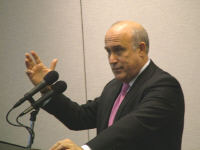 In August 2006, Magister also featured an interview with Israeli ambassador Oded Ben Hur, in which he commmented further on Israel's perception of Pope Benedict and Israel's expectations of Rome: In mid-July, just when the war had broken out in Lebanon, [Oded] was deeply troubled by the first statements from the Vatican authorities: “All of them went the same way, against Israel. The true aggressor, Hezbollah, wasn’t even mentioned by name. But after this the judgments became more balanced.”Q: Did this happen when Benedict XVI began speaking out personally? A: I would go so far as to say that Benedict XVI looks at Israel from a different point of view, compared to others. He sees the state of Israel not as an error of history, but as the heart of the Jewish world, a heart that by right should beat in Jerusalem. At the same time he is a realistic pope, who understands that the Church’s political influence is limited. He knows that the Church’s strength is not political, but moral. And it is there that he exerts himself most. It’s the pope as the great educator of the world, reawakening consciences, illuminating the darkness of ignorance, and pointing out where evil is triumphing over the good. Q: The Middle East is one of the places where evil abounds the most.
A: And it may be that today the international community is taking greater notice of this. What happened in Lebanon was not the rupture of a situation of peace. Peace wasn’t there before this war. In that country there was a cancer named Hezbollah, a state within the state, which held the civil population hostage and fought a war while using this population as a shield. Even today, after the ceasefire, Hezbollah says it does not at all consider the war to be over, and is refusing to disarm. And Hamas continues to launch Kassam rockets against Israeli cities. [...] Q: What is expected from the Church of Rome? A: A great deal. In Lebanon there is a strong Christian community that can act as a bridge for peace. The pilgrims to the holy places, when they come in great numbers, are also helpful to the local populations. I also have an idea that I have already proposed to the Vatican authorities: that of creating a task force with representatives from the three religions – Christianity, Judaism, and Islam – who would travel throughout the various countries of the Middle East spreading a message of reconciliation, in order to sensitize and mobilize those who sincerely desire peace, and separate them from extremist and violent groups.
In December of 2006 Israeli Prime Minister Ehud Olmert met with Pope Benedict XVI (Catholic News Service Dec. 14, 2006) - among the topics of discussion was the "dwindling Catholic population in the Holy Land, including in Bethlehem," and peace in the Middle East: Ben-Hur said Pope Benedict thanked the prime minister for Israeli's declaration of a cease-fire with Palestinian militias, although Ben-Hur said the prime minister said it is getting more and more difficult "to withhold reactions" to missiles being launched into Israel from Gaza.
Ben-Hur said that when Olmert renewed a government invitation for the pope to visit Israel, the pope said he really wanted to make such a trip, but was looking for "a moment of calm."
"The prime minister told him, 'You can bring the calm,'" the ambassador said.
Talks between Israel and the Vatican resumed in 2007 with the goal of applying the provisions of the Fundamental Agreement's over the holy places, the Church‘s properties, and finances. In Holy See-Israel: painstaking resumption of negotiations (AsiaNews.it Bernardo Cervellera, December 12, 2006), Oded Ben Hur gave another interview on the nature of the impediments to negotations. Related Resources
- Franciscan Custody of the Holy Land, the institution that cares for the property of the Catholic Church in Israel and the Territories.
- Catholic Friends of Israel, founded by Don Kenner. I came into contact with Mr. Kenner shortly after the Israeli-Hezbollah conflict in July-August 2006 and have become an occasional contributor to their blog. To learn about the founder of CFOI, I recommend this interview with IsraPundit; see also "The Bishops and the Suicide Bomber" FrontPageMag January 28, 2004).
- Christians for Fair Witness on the Middle East, founded by Sr. Ruth Lautt, O.P., Esq., advocates among mainline Protestants and Roman Catholics in North America for fairness in the churches’ witness on issues related to the conflict between Israel and its Arab neighbors.
- Milestones in Israel-Holy See Relations 1993-2005: Commemoration of the 40th Anniversary of Nostra Aetate Consulate General of Israel in New York.
- Pave The Way Foundation "dedicated to achieving peace by bridging the gap in tolerance and understanding, between religions through cultural, technological and intellectual exchanges." Gary Krupp, the founder, was promoted to the highest Pontifical Order of St. Gregory the Great -- the first Jewish man to be knighted by two popes.
Updates
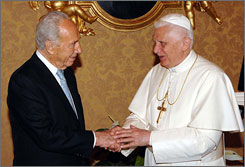 On September 9, 2007, Shimon Peres, in his first foreign visit as president of Israel, met with Pope Benedict at Castel Gandolfo and members of the Vatican curia, to discuss Catholic-Israeli relations and the situation in the Middle East. AsiaNews.it reports: On September 9, 2007, Shimon Peres, in his first foreign visit as president of Israel, met with Pope Benedict at Castel Gandolfo and members of the Vatican curia, to discuss Catholic-Israeli relations and the situation in the Middle East. AsiaNews.it reports:Rome (AsiaNews) – The Israeli President Shimon Peres is “quite optimistic” regarding negotiations between Israel and the Holy See and has declared that “within the years end the most important problems will be resolved”. Answering a question put forward by AsiaNews, during a press conference, he also said that he had invited Benedict XVI to visit Israel. ...
On the long standing question of the implementation of the Fundamental Agreement, 13 years on from its signing, the Holy See statement urges “a rapid conclusion to the important ongoing negotiations and the beginning of a constant dialogue with Israeli Authorities and local Christian communities, in view of their participation in working for the common good”.
September 3 last –after a long summer pause – and after years of deadlock, negotiations between the Holy See and Israel recommenced. They aim to lead to an agreement regarding issues of taxation and Church properties, which have been waiting implementation since ’93.
The Vatican statement makes no reference whatsoever to a possible visit by Benedict XVI to Israel, even if the pope has already expressed a positive opinion in the past. Peres told journalists that he was “moved” by the pope’s reaction to his proposal and defined Benedict XVI as “great spiritual figure”, underlining that “the Spirit” incarnated in the religions can give an important impulse to peace and the elimination of violence, “assassins and killings”.
Labels: israel, john paul II, politics
Saturday, August 05, 2006
The War Against Israel - News and Commentary Part IV
The following posts were compiled over the course of this past week and since the last roundup on the Middle East; I may update it with any additional news and commentary that strikes me on Sunday. My intent is to provide one decent roundup on this topic a week to facilitate thought and discussion.
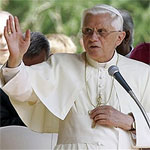 "Our Lord Has Conquered With a Love Capable of Going to Death" Zenit News Service offers a translation of the address Benedict XVI delivered last Sunday during a ceremony for Mideast peace over which he presided in the church of Rhemes-Saint-Georges in the Aosta Valley (July 25, 2006): "Our Lord Has Conquered With a Love Capable of Going to Death" Zenit News Service offers a translation of the address Benedict XVI delivered last Sunday during a ceremony for Mideast peace over which he presided in the church of Rhemes-Saint-Georges in the Aosta Valley (July 25, 2006):
The Lord has conquered on the cross. He has not conquered with a new empire, with a force that is more powerful than others, capable of destroying them; he has not conquered in a human manner, as we imagine, with an empire stronger than the other. He has conquered with a love capable of going to death.
This is God's new way of conquering: He does not oppose violence with a stronger violence. He opposes violence precisely with the contrary: with love to the end, his cross. This is God's humble way of overcoming: With his love -- and only thus is it possible -- he puts a limit to violence. This is a way of conquering that seems very slow to us, but it is the true way of overcoming evil, of overcoming violence, and we must trust this divine way of overcoming.
To trust means to enter actively in this divine love, to participate in this endeavor of pacification, to be in line with what the Lord says: "Blessed are the peacemakers, the agents of peace, because they are the sons of God." We must take, in the measure of our possibilities, our love to all those who are suffering, knowing that the Judge of the Last Judgment identifies himself with those who suffer.
Therefore, what we do to those who suffer, we do to the Last Judge of our life. This is important: At this moment we can take his victory to the world, taking part actively in his charity. Today, in a multicultural and multireligious world, many are tempted to say: "For peace in the world, among religions, among cultures, it is better not to speak too much of what is specific to Christianity, that is, of Jesus, of the Church, of the sacraments. Let us be content with what can be more or less common .…"
But it is not true. Precisely at this time, a time of great abuse of the name of God, we have need of the God who overcomes on the cross, who does not conquer with violence, but with his love. Precisely at this time we have need of the Face of Christ to know the true Face of God and so be able to take reconciliation and light to this world. For this reason, together with love, with the message of love, we must also take the testimony of this God, of God's victory, precisely through the nonviolence of his cross. See also At the Summit on the Middle East, Benedict XVI Preaches the Cross of Jesus, by Sandro Magister. www.Chiesa July 26, 2006.
- Mideast war brings pope's foreign policy agenda into clearer focus, by John Thavis. Catholic News Service August 4, 2006:
With the war in Lebanon, the Vatican's Middle East policies under Pope Benedict XVI have come into clearer focus.
To the surprise of some, they look just like the policies of Pope John Paul II.
The Vatican's insistent call for an immediate cease-fire in Lebanon has highlighted a basic disagreement with the United States and some other Western governments. Backing Israel, the U.S. wants a cease-fire conditioned on a wider accord ultimately aimed at disarming Hezbollah fighters in southern Lebanon.
The pope, on the other hand, has urged all sides to lay down their weapons now, saying nothing can be gained by the current fighting.
- Relief work nearly impossible without cease-fire, says CRS official, by Agostino Bono. Catholic News Service August 4, 2006. (Links and further discussion via Amy Welborn, Lebanon stories from the Catholic press August 4, 2006 -- with an interesting and remarkably civil debate between Father Elijah, Victor Morton, "lurker #59" and Tom Haessler in the combox).
- On July 27, 2006, John Allen Jr. interviewed Bishop Thomas Wenski of Orlando chair of the Committee on International Policy for the U.S. bishops, about the administration's policy toward Lebanon. On the call for an immediate cease-fire, Bishop Wenski:
Neither the Holy See nor the conference of bishops wants a return to the status quo. We were careful in our statement to point out the difficulties with the weakness of Lebanon, and that allowing the existence of a state within a state in the form of the Hezbollah is not sustainable. We want Lebanon to be strengthened as a sovereign nation. But above all, the fighting should stop. These are not mutually exclusive goals … we can both stop the fighting and continue the disarmament of Hezbollah. Some people seem to want the fighting to continue until there is no Hezbollah left to disarm, but that’s not the right way to reduce the number of mothers who have to mourn the loss of their sons and daughters. Wenski went on to defend the statements made by Secretary of State Cardinal Angelo Sodano ("I think they’ve been pretty much on the money"), denied the appearance of a "pro-Palestinian tilt" to Vatican foreign policy ("I wouldn’t say it’s a question of a lack of balance, but just a different perspective") and reiterated the Church's preference for a "two state solution":. . . for the State of Israel to be recognized and to survive whatever accommodation needs to be made with the Palestinians. Perhaps we’re more keenly aware of the justice issues involved and the many legitimate grievances that the Palestinian people have, in part because there’s a significant constituency of Palestinian Christians, Palestinian Catholics. This is not a question of being biased for or against one or the other group, but of trying to be a prophetic voice calling for justice. Sometimes people would rather take umbrage than examine their conscience.
See Amy Welborn's Open Book for discussion and reaction to the Wenski interview.
- The other theater of the war, by Michael Liccione. Sacramentum Vitae July 30, 2006:
War is always and unavoidably horrific. It must be especially sickening for parents who get to see the mangled bodies of their dead children. I haven't seen that and hope I never will. But even so I am sickened—sickened by the assumption, made apparently even at the Vatican, that there's some sort of moral equivalency between the combatants in this latest theater of the war with radical Islam. Beyond backing Israel materially, our part in the fight is to discredit that assumption.
- Why Israel keeps fighting - Domenico Bettinelli, Jr. July 28, 2006:
Let’s say that five years ago a man who has declared himself your enemy kidnapped your child, kills hims, and demands $100,000 as ransom plus your pledge that you wouldn’t seek to have him arrested or prosecuted and wouldn’t retaliate in any way. In the interests of peace and forgiveness, you go along with his demands. Six years later, he kidnaps another of your children. What do you do? What would you have Israel do?I fully support Pope Benedict’s call for an immediate cease-fire and cessation of hostilities. What I don’t think I can support is a unilateral cease-fire by Israel without an equivalent reaction by Hezbollah. That would be appeasement of evil. If Hezbollah agreed to lay down its arms, if Lebanon--and perhaps an international force to help it while it got up to speed--pledged to take responsibility for keeping Hezbolah from attacking Israel, if Syria and Iran pledged to stop supporting Hezbollah, and if Syria pledged to stop interfering in Lebanon’s internal affairs, then I think Israel could be convinced to stop its bombardment--after the return of its abducted soldiers--alive--of course.
But until the attacks against it stop, under what principle of justice should Israel lie down and surrender?
- Josh Trevino (Enchiridion Militis) on The fiction of Lebanon July 26, 2006:
Lebanon as a polity was only ever meaningful and valuable inasmuch as it provided a haven for the Christians who would otherwise be slowly annihilated in the manner of their fellow-Christian communities elsewhere in the region. Absent that — and in effect, absent any Western connection at all — there is no rationale for keeping it separate from Syria, or for keeping it geographically united. As the Israelis kill and drive out the jihadist army in the south, then, they are doing far more to preserve Lebanon than destroy it. Hezbollah and its ilk would never have coexisted indefinitely with the Christians — or the Druze — in their putative common state. Islamism is not a foundation for pluralism, and it is not compatible with it. If we value “Lebanon” — and if those protesting that Israel is “punishing” Lebanon, “disproportionately” or otherwise, truly valued Lebanon as anything but a tool with which to bash the Jewish state — then we are compelled to applaud the IDF in its attempt to destroy the force which would, in time, destroy that very country. The true pity is not that the Lebanese suffer — and they do — but that they did not do it themselves.
- On the First Things blog "On The Square", Villanova U. School of Law professor Robert T. Miller takes issue with Pope Benedict's call for an immediate ceasefire:
 As Joseph Bottum noted here on July 27, talk like this implies a moral equivalence between Hezbollah, which intentionally kills civilians, and the Israelis, who in attempting to put an end to that sort of thing sometimes unintentionally kill civilians despite reasonable precautions. Glossing over that difference fatally vitiates Benedict’s conclusion. As Joseph Bottum noted here on July 27, talk like this implies a moral equivalence between Hezbollah, which intentionally kills civilians, and the Israelis, who in attempting to put an end to that sort of thing sometimes unintentionally kill civilians despite reasonable precautions. Glossing over that difference fatally vitiates Benedict’s conclusion.But there’s another problem with Benedict’s position. It may seem unobjectionable, from a moral point of view, to say that parties involved in an armed conflict ought to stop fighting immediately, but in fact there are cases in which this solution would be wrong. An immediate ceasefire between the warring parties in France on, say, June 13, 1944, would have worked to Hitler’s advantage admirably. Whether, in any particular conflict, an immediate ceasefire ultimately promotes justice and peace is, in important part, an empirical question on which popes are not well-qualified to pronounce. Worse, the immediate ceasefire Benedict favors fits squarely within the definition of victory that Hezbollah has set for the current conflict.
 Also blogging for First Things, Frederica Mathewes-Green responds: Also blogging for First Things, Frederica Mathewes-Green responds:Jesus was speaking to an oppressed minority, citizens of an occupied country, when he told them to love their enemies and turn the other cheek. This advice did not free his people from oppression, but then again, neither did open revolt forty years later. But it did allow his followers to live in his spirit, no matter what assailed them. The following centuries, when Christians were even more crushed and humiliated, were indeed the seed of the Church. Powerlessness can be power. . . .I think we can expect Christian leaders to do no less than issue the same call to unilateral love that Jesus gave—nonsensical as it is if worldly power is the goal. We can expect that these few solitary Christian voices will not be heeded, anyway. But that’s no reason to dilute the strange and unsettling Christian message. Robert Miller counters:One thing that follows from this is that his advice does not directly translate into policy prescriptions for political leaders who have a moral responsibility to act for the common good of their communities. For example, we are commanded to turn the other cheek as to injuries to ourselves, but not to turn the cheeks of the weak and vulnerable when we have a moral duty to defend them. It’s no part of Christian charity, for example, for a mother to stand by and let her child be raped when she could use force to stop the rapist, including by killing him if necessary. When a sovereign state uses military force to stop unjust aggressors from killing its citizens, we have the same moral principle writ large.Incidentally, love of neighbor, as applied to the aggressor, also requires that those in charge of the political community act to stop aggressors from perpetrating such crimes. The reason is that love of neighbor means willing what is good for our neighbors, and it is not good for a man that he intentionally kill the innocent, as Hezbollah terrorists do. Murderers harm themselves much more than they harm their victims. It’s an act of charity, therefore, in regard to such people, to use force to stop them from doing such wicked things. I couldn't help but notice captured in that brief exchange a similarity to the debate over using military force to end the tyranny of Saddam Hussein in Iraq.
See also Does Israel = Hezbollah in B 16's Moral Calculus?, by Mark Brumley (in response to Prof. Miller). Insight Scoop August 1, 2006.
- Madness. A complete disconnect from reality", says Dale Price on former American ambassador Raymond L. Flynn's commentary on the war in Lebanon (National Catholic Register August 6-13, 2006):
Look carefully at Flynn's piece. Look for the following words: Hezbollah, Islamic, and terrorist.
Total running tally: one--for terrorist. And it's a quote, not Ray Flynn's own word.
Instead, we are treated to a caning of Israel--and Israel alone. Along with "political extremists" and "special interest groups."
For which the only sensible reading in the context of the essay is "Jews," of course. Which adds a faintly sinister cast to the piece as well, I'm sorry to say.
Not a shred of the essay shows the slightest awareness of the existence of the puppetmasters in Syria or Iran. Instead, Israel is the bully. This failure to understand the basic facts on the ground would be amazing if it weren't so utterly sickening.
- Activating Hezbollah cells "to make no place safe for Israelis": The Implications for Southeast Asia, by Zachary Abuza. CounterTerrorism Blog examines the potential for destruction with the activation of Hezbollah "sleeper cells" in Southeast Asia, where "Hezbollah operatives have been arrested in Thailand, Singapore, Malaysia, and the Philippines," taking over legitimate charities and soliciting funds. Judging by the Hezbollah-sponsored terrorist incidents in Asia during the 1990's, the concern is warranted. (See also German Intelligence Supports Claim of Hizballah Cell Activation, by Daveed Gartenstein-Ross.)
- Israelis & Christians: Hezbollah hits two birds with one stone, by American Papist August 4, 2006, relaying news from Christian Solidarity International that "Hezbollah is using Christian villages to shield its attacks against Israel. According to Christian Solidarity International, Hezbollah is hiding among civilian populations, mostly in southern Lebanese towns, such as Ain Ebel, Rmeish, Alma Alshaab."
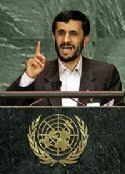 Scarier than Fiction. This Ongoing War August 3, 2006: On Thursday, Iranian President Mahmoud Ahmadinejad said the only solution to the Middle East problem is the destruction of Israel. "The primary medicine for the problems of the region and the world is the annihilation of the Zionist regime." [Source: YNetnews.com"]. Scarier than Fiction. This Ongoing War August 3, 2006: On Thursday, Iranian President Mahmoud Ahmadinejad said the only solution to the Middle East problem is the destruction of Israel. "The primary medicine for the problems of the region and the world is the annihilation of the Zionist regime." [Source: YNetnews.com"].If that's not frightening enough, French Foreign Minister Philippe Douste-Blazy has proclaimed: "We think more than ever that the Iranians are an important and respected actor" and "plays an important stabilizing role in the region." [Source: FARS News Agency]. What to make of the two statements?: As slightly-amusing as these two pieces of imbecilic logic might be under normal circumstances, they're neither funny nor trivial here and now. The challenge is to keep in mind that:- Item 1 reports today's speech by a head of state who recently addressed the United Nations, and whose country is developing nuclear weapons.
Item 2 reports last week's speech by a top-level politician from Europe's largest country - a country which has veto power over the UN Security Council and which has a track record of self-aggrandizing, irresponsible meddling in other people's affairs.
- It's All About Peace, Love and Understanding, Eh? - Drink Soaked Trotskyite Popinjays for War examines the exploitation that occurs when "well-meaning Canadian pacifists providing cover for supporters of a heavily-armed terrorist movement that cites among its casus belli the Protocols of the Elders of Zion."
- Reuters admits altering Beirut photo, by Yaakov Lappin YnetNews.com:
Reuters withdraws photograph of Beirut after Air Force attack after US blogs, photographers point out 'blatant evidence of manipulation.' Reuters' head of PR says in response, 'Reuters has suspended photographer until investigations are completed into changes made to photograph.' Photographer who sent altered image is same Reuters photographer behind many of images from Qana, which have also been subject of suspicions for being staged. See Little Green Footballs (Reuters Doctoring Photos from Beirut? August 5, 2006) for the expose, along with an extensive roundup of reaction from Pajamas Media.It was only last week that bloggers noticed some discrepancies in reporting on the Qana attack, demonstrating reasont to believe a man who appeared in much of the international press's coverage of the Qana bombing lifting children's bodies may have been a Hizbullah agent who staged photo-ops for the international media.. Back in May 2006, a Reuters employee was suspended for issuing a "Zionist pig" death threat, after telling American blogger: 'I look forward to day when you pigs get your throats cut.'
Update! - Michelle Malkin has a round-up of the Smoke-Clearing Blogstorm -- more incidents of photo-doctoring by Reuters have been uncovered, this time involving a depiction of "An Israeli F-16 warplane [firing] missiles during an air strike on Nabatiyeh in southern Lebanon, August 2, 2006."
The blog Sweetness and Light has some questions about what is perhaps the most iconic photograph from the carnage at Qana.
- When Israelis become invisible - The Pontifical council Cor Unum, the charity arm of the Vatican, Cor Unum, has also launched a special drive to raise funds for relief efforts on behalf of the civilian populations of the Middle East. It will be coordinating its efforts with with Catholic charitable agencies operating in the region, such as Caritas-Lebanon and the Franciscan Custody of the Holy Land.
A special collection for the effort was held in the parish of the blogger Christian Attitudes To Jews, Israel and Zionism, the author of which is concerned about the lack of any mention given toward Israel.
Question: do "those in need in the Middle East" include Jews as well? -- A pertinent question. For those who would like to provide direct aid to Israel as well, the Jewish blog Keshertalk provides a convenient list of many worthy organizations doing emergency aid work in Israel. There are victims and refugees on both sides of this conflict.
- Michael Totten offers us a glimpse at "The Real Middle East" July 29, 2006: "The Middle East isn't a cartoon. It's a rich and complex place. Many, if not most, of its citizens refuse to submit to the dumb little categories fanatics and outsiders like to impose on them." For a longer account of his experiences living in Lebanon and it's political climate and stability, see Lebanon’s Premature Liberalism.
According to Michael, "my sources and friends in Beirut tell me most Lebanese are going easy on Hezbollah as much as they can while the bombs are still falling. But a terrible reckoning awaits them once this is over."
- Prisoner Exchanges and Moral Choices July 25, 2006. Hezbollah's intent for kidnapping Israeli soldiers was for the purpose of a prisoner exchange, without which they claim no ceasefire is possible.
Just who are the terrorists Hizbollah and the Palestinians want to see released? -- Sigmund, Carl and Alfred look at the case of Samir Kuntar, heralded as "the longest-held Lebanese detainee in Israeli prisons". The reason for his "detainment"? -- Murdering the husband and four-year-old daughter of an Israeli family -- in fact, "[smashing] the little girl's skull in against a rock with his rifle butt."
Little wonder the former wife of 28-year-old Danny Haran feels "The World Should Know What He Did to My Family" (Washington Post May 18, 2003). The bloggers conclude: We have a choice. We can support the moral values of a Samir Kuntar or we can support the morality of Smadar Haran Kaiser. We can support the society that produces a Samir Kuntar and demands his release, or we can support the society that finds the likes of Samir Kuntar repulsive and demands he be kept locked away, so that he cannot continue committing acts of terror.
- Speaking of the demand for ceasefire, were you aware that there have already been four cease-fires in south Lebanon—in 1978, 1982, 1993, and 1996? -- According to Ze'ev Schiff (How to end the war Ha'aretz):
These agreements were not worth the paper on which they were written. Even withdrawing from Lebanon down to the last millimeter, as confirmed by the UN, did not prevent Hezbollah from continuing its attacks, abducting and killing Israelis, shelling Israeli towns – and no less important, building up a huge array of rockets and missiles, courtesy of Iran and Syria, and digging in very deep along the border. Should Israel's strategy for ending the war repeat the same scenario? That would be a recipe for suicide. See Cease-Fire in Lebanon: Two Opinions, by Marc Schulman. American Future Jul 28, 2006.
- Praying for Hummus, Getting Hamas Spiegel Online. July 25, 2006. Zeev Avrahami, a former peace activist, explains why he has laid down his olive branch and is prepared to grab for his rifle:
Eighteen years after finishing my military service -- almost two decades after swearing that I would never again wear a uniform -- I called the Israeli consulate in New York and gave them my phone number. If the army needed me, I told them, I would be the first on a plane back to Israel.
For those who are overwhelmed by the news and eager to discuss other topics, I would like to remind you of our latest "Here and There" roundup of blogs, articles and commentary -- where you'll hopefully find something which strikes your fancy. (I tried to go light on the politics). Previous roundups of news and commentary on the war against Israel: 7/16/06; 7/19/06; 7/24/06. Labels: benedict roundup, israel
Monday, July 24, 2006
The War Against Israel - News and Commentary Pt. III
[A continuation of coverage on Israel's struggle for survival against Hamas, Hezbollah, Iran and Syria; for previous coverage Part I & Part II -- CB]
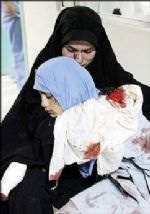 - On July 20, 2006, Pope Benedict proclaimed Sunday a day of "prayer and penance" for the worsening situation in the Middle East. According to the communiqué issued today by the Vatican press office (available via Zenit News Service):
The Holy Father is following with great concern the destinies of all the peoples involved and has proclaimed this Sunday, July 23, as a special day of prayer and penance, inviting the pastors and faithful of all the particular Churches, and all believers of the world, to implore from God the precious gift of peace.In particular, the Supreme Pontiff hopes that prayers will be raised to the Lord for an immediate cease-fire between the sides, for humanitarian corridors to be opened in order to bring help to the suffering peoples, and for reasonable and responsible negotiations to begin to put an end to objective situations of injustice that exist in that region, as already indicated by Pope Benedict XVI at the Angelus last Sunday, July 16. In reality, the Lebanese have the right to see the integrity and sovereignty of their country respected, the Israelis, the right to live in peace in their state, and the Palestinians have the right to have their own free and sovereign homeland. At this sorrowful moment, His Holiness also makes an appeal to charitable organizations to help all the people struck by this pitiless conflict.
- Pope Benedict has also stated that he backs the G8 Summit document condemning Hezbollah. :
Two days before the statement was released by the Vatican, Pope Benedict endorsed a Group of Eight declaration that criticized Hamas and Hezbollah for fueling an escalation in current hostilities and urged Israel to exercise restraint in its retaliation."I find myself in full agreement with the G-8 communique," the pope said July 18 during his vacation in the northern Italian Alps. "I have nothing else to add other than the importance of prayer so that God may help us." (Pope calls for immediate cease-fire, negotiations, penance, prayers for peace Catholic Online (Catholic.Org) 7/20/2006.
- Know Thine Enemy - From Greensboro, NC's The Rhinoceros Times, Orson Scott Card questions the notion of "Lebanese sovereignty":
If Israel sends its troops into southern Lebanon, you can be sure that it will be condemned as a violation of "Lebanese sovereignty."What Lebanese sovereignty? Either the Lebanese government controls southern Lebanon or it doesn't. If it is sovereign Lebanese territory, then Lebanon as an entirety is responsible for the terror missile attacks launched against Israeli civilians by the Hezbollah forces that openly rule there. Therefore, Lebanon has committed acts of war against Israel, and Israel is perfectly justified in any military action it takes against the entirety of Lebanon. But if the Lebanese government declares that it is not responsible for missiles launched from that region of their nominal territory, then by that admission they confess that it is hot territory for which the Lebanese government claims responsibility. In which case, Hezbollah is the ruler of that territory (which it is), and Israel, regardless of lines on a map, has a right to invade Hezbollah territory and destroy the capacity of that enemy to make war against them.
- Israel Is Fighting for its Life, but the Vatican “Deplores” - www.chiesa July 19, 2006. "Departing secretary of state Sodano is one of the prominent proponents of the anti-Israeli camp. But there are some who have a different view on the new war in Lebanon." A column by professor Vittorio E. Parsi, and an interview with Fr. David Maria Jaeger.
- The Sodano Code: The Vatican's stale policy on the Middle East. Weekly Standard Volume 011, Issue 43. Jody Bottom asserts that "since the founding of Israel in 1948, the Vatican has never had a clear idea how to respond to tensions in the area" -- the fate of Christians in Islamic countries hanging in the balance, and endangered by the slightest hint of support for the Jews:
The Vatican was never anti-Israeli, and it certainly never condoned or praised terrorism. But, bit by bit, Rome's advisers and experts on the Middle East came to be those whose first impulse was to take the Arab, and particularly the Palestinian, side in any dispute with Israel or the United States. According to Bottum, the same diplomatic strategy underlied Cardinal Sodano's statements on the present situation:. . . in one sense, Sodano was merely indulging the kind of ritual statement--everybody's wrong, but Israel most of all--that the Vatican has been issuing for decades. It didn't mean much in 1973, and it doesn't mean much now.
In another sense, however, Sodano's remarks on Vatican Radio--and similar statements by other Catholic figures, from the custodians of the holy places in Israel to the editorialists in the Vatican newspaper, L'Osserv atore Romano--are most disturbing precisely because of their datedness. The situation in the Middle East is no longer simply a battle between Israelis and Palestinians. With the increasing role of the Iranians, and the refusal of the Arab League to involve itself, the fight doesn't even really center around the Arabs.
It is, rather, a war between the Islamists and the West--a proxy fight, in which the totalitarian governments of Syria and Iran have aimed the weapon of terrorism at modern democracies. And, for the Catholic Church, the answer cannot remain the old, ritual statements about the Middle East, dusted off one more time. John Paul II had a vision for confronting totalitarianism--a way of refusing government by the lie and naming things for what they are. It is time for the Vatican to apply that vision to the Middle East. Further discussion of Bottum's article at Amy Welborn's Open Book.
- Religious brother details tension in Lebanon Catholic News Agency July 18, 2006. "In e-mails sent to his family members and community, Marist Brother Jose Maria Romero has detailed the growing tension Christians are experiencing in Lebanon amidst the conflict between Israel and Hezbollah." Another report on the refugee situation is provided by Antioch Abouna - "a Lebanese Orthodox Christian of the Patriarchate of Antioch."
- Shaken and Stirred, by Josh Manchester. TCS Daily July 21, 2006, arguing that the US invasion of Iraq has destroyed any consensus that might have existed between Arab states, prompting a reconsideration of their roles and support of terrorism:
Were Saddam still in power, the Arab world would not feel nearly as threatened by Hezbollah, the Frankenstein's monster of Iran's creation. Instead, they would have sided with the Syrian foreign minister's strong support for Hezbollah. Saddam himself might even have offered cash rewards to anyone attempting martyrdom against the Jews.
Instead, they came to no consensus. The leading Arab League states, Saudi Arabia, Jordan, and Egypt, call Hezbollah's actions "inappropriate and irresponsible." This lessens the urgency of calls from the international community, whether the G8, UN, or EU, for a ceasefire. That lessened urgency creates something very precious indeed: a moment in time and space wherein Israel has the most fleeting of opportunities for decisive action against Hezbollah, an avowed foe, a terrorist organization, and a constant threat to the security of its populace.
- The Stupid, Isolationist Right. July 21, 2006. Tom Karako of The Claremont Review's The Remedy pens a rebuttal to Pat Buchanan's assertion that Israel's struggle for survival shouldn't be considered "our war":
One does not have to be a democratization zealot, or to say things like "we are all Israelis today," or to walk around with the purple thumb of Iraqi solidarity, to see that America does indeed have a powerful interest in preventing monsters abroad the freedom to rampage, hurt our allies, and gather strength and organization—before coming to search after us. This is monster-slaying which John Quincy Adams would sanction, indeed require. Buchanan suggests that we have no dog in this fight. When Hezbollah has pushed Israel into the sea, will they then become America’s new ally in the region?
- Terror Supporters in New York City - Little Green Footballs comments on the "ridiculously bland" caption by Reuters depicting a "Lebanon protest outside the Israeli consulate in New York", July 18, 2006. Correct me if I'm wrong, but slogans like "God will send the Mushroom Cloud from the Sky on Israel", "Allah will destroy the terrorist state of Israel" and "Islam will DOMINATE," -- with a photo of an Islamic flag over the White House -- speak to me something more than a mere "support for Lebanon." But decide for yourself. You can view photographs from the entire Islamic hate-rally against Israel here.
Ignoring the fact that Israel Sets Up Humanitarian Aid Corridor To Lebanon, protestors scream "genocide!" Meanwhile, Iran has reasserted the duty of Muslims to “wipe out” Israel, and Iranian president Mahmoud Ahmadinejad, declared Sunday that Israel had "pushed the button of its own destruction" by launching its military campaign against the Iranian-backed Hizbullah in Lebanon (Jerusalem Post July 23, 2006).
- A collection of words from a reluctant war compiled by Loy Mershimer. July 20, 2006.
Understanding Hezbollah
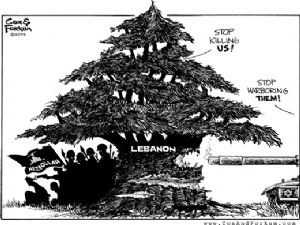 - Hizballah Activity in North America CounterTerrorismBlog.org. Brian Hecht of The Investigative Project on Terrorism has prepared a quick reference guide to major Hizballah and Hizballah-linked illegal activity in the United States, Canada and Mexico.
In Hezbollah and Main Street (The Washington Times July 21, 2006), Diana West raises some concerns as well about the evacuation of "dual nationals" who convey their sympathies for the terrorist organization: "In this wide-open question of loyalties we may see the expanding emptiness of the modern nation-state, where basic identification with the nation itself is no longer at the core of citizenship. And that includes the United States, where, for example, a good stretch of Main Street follows the Israeli war on Hezbollah via Al Jazeera."
- How Deeply Are Iran And Syria Involved In Lebanon?, asks Captains Quarters. Ynet News reported last night that the IDF had intercepted missile shipments coming from Syria, and the New York Sun's Ira Stoll says that "hundreds" of Iranian troops have joined Hezbollah's missile brigades.
- Hizbollah's Iranian War in Lebanon, Counterterrorism Blog July 22, 2006. Walid Phares, Senior Fellow at the Foundation for the Defense of Democracies and author of Future Jihad: Terrorist Strategies Against The West, provides the necessary background history on Hezbollah and Syrian, Iranian involvement. A must-read.
- Katyusha rockets, ball bearings and bombs, by Donald Sensing. A shredded car provides a graphic illustration to Human Rights Watch' earlier report of Hezbollah's deliberate illegal targeting of civilians with missiles containing ball-bearings. The Jerusalem Post has a summary of recent rocket attacks on Israel. Although as Sensing reminds us, there is "plenty of suffering to go around" -- Lebanese civilians not having the benefit of Israeli bomb shelters built in response to years of bombardment. The Ouwet Front, a blog expressing the "personal views and opinions of members of the Lebanese military", rails against Hezbollah's Dirty Methods.
- Hostage to Hezbollah - Lesson for Nasrallah: "The violence done to Lebanon shall overwhelm you", by Foad Ajami:
Nasrallah's brazen deed was, in the man's calculus, an invitation to an exchange of prisoners. Now, the man who triggered this crisis stands exposed as an Iranian proxy, doing the bidding of Tehran and Damascus. He had confidently asserted that "sources" in Israel had confided to Hezbollah that Israel's government would not strike into Lebanon because Hezbollah held northern Israel hostage to its rockets, and that the demand within Israel for an exchange of prisoners would force Ehud Olmert's hand. The time of the "warrior class" in Israel had passed, Nasrallah believed, and this new Israeli government, without decorated soldiers and former generals, was likely to capitulate. Now this knowingness has been exposed for the delusion it was.There was steel in Israel and determination to be done with Hezbollah's presence on the border. States can't--and don't--share borders with militias. That abnormality on the Lebanese-Israeli border is sure not to survive this crisis. One way or other, the Lebanese army will have to take up its duty on the Lebanon-Israel border. By the time the dust settles, this terrible summer storm will have done what the Lebanese government had been unable to do on its own. Worthy reading from the Lebanese-born American university professor.
Information Resources
Previous roundups of news and commentary on the war against Israel: 7/16/06; 7/19/06. Labels: israel
Saturday, July 22, 2006
Israel - Hezbollah - Lebanon, "Proportionality" and Just War Theory
The conflict between Israel and Hezbollah, the loss of civilian life and the targeting of "civilian infrastructure" compromised by Hezbollah has provoked a discussion of proportionality and just war criteria -- for the benefit of our readers, this post will compile the key articles and contributions on this subject.
- Just War for the Sake of Argument, by Stephen Bainbridge. TCS Daily July 18, 2006.
- Proportionality in War Rob Driscoll. The Remedy July 18, 2006.
- Bainbridge’s “Just War for the Sake of Argument” Democracy Project July 18, 2006.
- How Just Must a Just War Be?, by Jordan Baillor. Acton Institute PowerBlog July 20, 2006 at 09:08am.
- A Question About Just War Theory July 20, 2006. Prof. Bainbridge.
- When is a War Just? by Anthony Clark. Georgetown.edu: "Exploring International Law" July 20, 2006 (6:03pm).
- Proportionality in jus in bello by Kenneth Anderson (Law of War and Just War Theory Blog). July 21, 2006.
- Answers to Just War Questions, by Jordan Ballor. Acton Institute Powerblog Friday, July 21, 2006 at 08:10am.
- More on Proportionality and Just War, by Anthony Clark. Georgetown.edu: "Exploring International Law" Jul-22-06 02:07 pm.
- War Fair: The Ethics of Battle, by Michael Walzer. The New Republic:
Israel is now at war with an enemy whose hostility is extreme, explicit, unrestrained, and driven by an ideology of religious hatred. But this is an enemy that does not field an army; that has no institutional structure and no visible chain of command; that does not recognize the legal and moral principle of noncombatant immunity; and that does not, indeed, acknowledge any rules of engagement. How do you--how does anyone--fight an enemy like that? I cannot deal with the strategy and tactics of such a fight. How to strike effectively, how to avoid a dangerous escalation--those are important topics, but not mine. The question I want to address is about morality and politics.The easy part of the answer is to say what cannot rightly be done. . . . An examination of the situation by the author of Just And Unjust Wars: A Moral Argument With Historical Illustrations (Basic Books, 2006).
- Quick note on proportionality jus ad bellum and the law of belligerent reprisal, by Kenneth Anderson. Law of War and Just War Theory Blog July 26, 2006.
- Who Owns the Rules of War?, by Kenneth Anderson. New York Times Magazine April 24, 2003. [Repost]
- On the differences between Catholic just war theory and Michael Walzer's just war theory: the criterion of likelihood of success, by Kenneth Anderson. Law of War and Just War Theory Blog July 28, 2006:
a discussion in moral theory of the just war, from two years ago, of differences between Catholic just war theory and other versions of the theory, notably that of Michael Walzer in his celebrated Just and Unjust Wars. I have been thinking about these differences in reading the commentary on the Lebanon conflict, particularly that of the Catholic law professor Stephen Bainbridge . . .
See also:
- Louise Arbour, top US human rights official, stated that the killing and maiming of civilians under attack in Lebanon, Israel and Gaza and the West Bank could constitute war crimes (New York Times July 19, 2006). In Are Israel's Military Operations in Lebanon Proportional? -- What International Law Really Says, Doni Remba, President of Chicago Peace Now, disputes the United Nations' accusations.
- Fighting the Wolves at the Gate One Hand Clapping July 20, 2006. Deacon John Krenson, Afghanistan veteran and author of Crossfire - A Time for Peace, War & Love, examines the conflict in light of just war criteria.
Labels: israel
|
From the new blog

|

 Before praying of the midday Regina Caeli with those gathered in St. Peter's Square, the Pope reflected on his recent eight-day tour of Jordan, Israel and the Palestinian territories (Zenit News):
Before praying of the midday Regina Caeli with those gathered in St. Peter's Square, the Pope reflected on his recent eight-day tour of Jordan, Israel and the Palestinian territories (Zenit News):

 John Paul II's greetings to Israel in celebration of their new year appears to have sprung from a collaboration with his lifelong friend Jerzy Kluger, who played a subtle yet instrumental role (at the Pope's request) in facilitating communication between Israel and the Vatican (How a Pope's Boyhood Friend Helped Forge Ties to Israel):
John Paul II's greetings to Israel in celebration of their new year appears to have sprung from a collaboration with his lifelong friend Jerzy Kluger, who played a subtle yet instrumental role (at the Pope's request) in facilitating communication between Israel and the Vatican (How a Pope's Boyhood Friend Helped Forge Ties to Israel): The Vatican-Israel Accords: Political, Legal, and Theological Contexts, edited by Marshall J. Breger. University of Notre Dame Press (February 2004). [Contents].
The Vatican-Israel Accords: Political, Legal, and Theological Contexts, edited by Marshall J. Breger. University of Notre Dame Press (February 2004). [Contents].







 In an exclusive article,
In an exclusive article,  On September 9, 2007,
On September 9, 2007, 
















